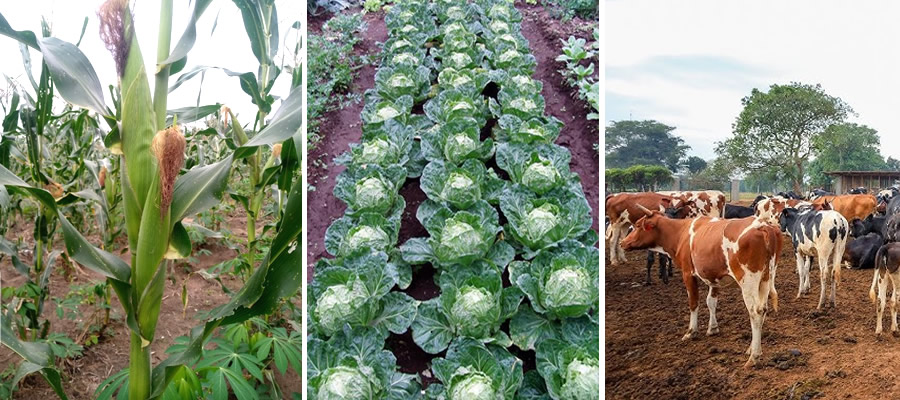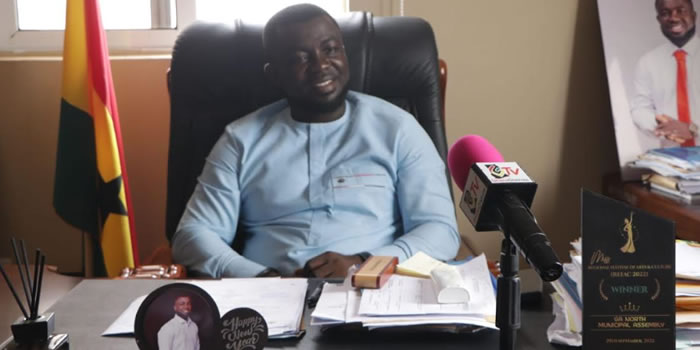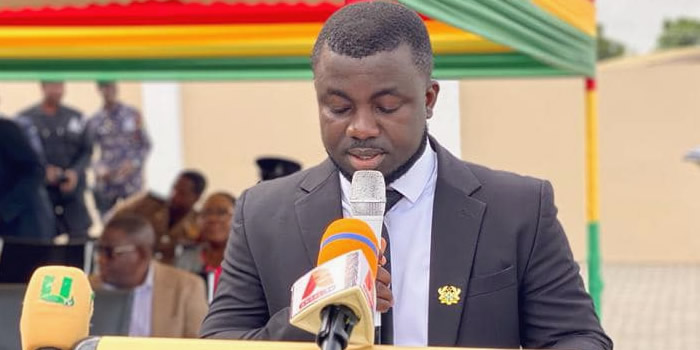

GENERAL
Ga North NCCE marks International Mother Language Day
The Ga North Municipal Office of the National Commission for Civic Education (NCCE) has marked International Mother Language Day, with a call on parents and teachers to teach children how to speak local languages.

Date Created : 2/22/2024 12:00:00 AM : Story Author : Paul Eduarko Richardson/Ghanadistricts.com
Ms Mabel Munufie, Municipal Director, Ga North Municipal Office of the NCCE, said parents must speak the native language with the children, so that the children would also learn the language.
She said parents should frequently take their children to their hometowns to participate in community activities such as festivals so they could master the native language.
"Children should also let their parents understand that it is important to speak the mother language and press on their parents to teach them the language," she added.
The Ga North Municipal Office of the NCCE observed the Day with the pupils of Amamorley Methodist Basic 2 in Accra.
Celebrated on February 21 every year, the International Mother Language Day, seeks to create awareness of linguistic and cultural diversity and to promote multilingualism.
The theme for 2024 is “Multilingual education – a pillar of learning and intergenerational learning”.
The theme emphasises that mother tongue education supports learning, literacy and the acquisition of additional languages.
Ms Munufie said the school must have the various Ghanaian languages in the curricula so that a child belonging to a particular ethnic group would be able to study that group's language at school.
"Gone are the days when you got to school campuses and they wrote on the walls 'Speak English'.
"That instruction did not encourage our students to take their native languages seriously. So, as of now, some of them do not know how to speak their native language.
"So teachers should pay attention to making the students like their mother languages and to improve their skills in reading and learning them," Ms Munufie said.
She said the Government should make a conscious effort to ensure that most of the local languages were used at State functions and national events to promote them.
Touching on the theme for the Day, she said it was important for children to learn multiple languages to facilitate their mobility and enable them to thrive in diverse cultures and environments.
"When students are fluent in their mother tongue and other native languages, it becomes a plus to them.
"Being multilingual will help the students develop good relationships and connect well with other people," she noted.
Madam Naa Koshie Wellington, Ga Teacher at the Amamorley Methodist Basic 2, commended the NCCE for observing the Day with the students.
"We should know that the English Language is not ours. And if we are going to help our children, then we should start from our own. So, teaching children the mother tongue in our homes and schools will be very beneficial," she said.
She noted that teaching children in the L1 or the native language helped children to understand better what the teacher taught, adding that "it also enables children to learn the native languages well."
She encouraged the Government to make mother languages core subjects in the schools.
As part of the activities to mark the Day, pupils of the Amamorley Methodist Basic 2 read books written in the Ga language to improve their reading and speaking of the mother tongue.
Madam Wellington said: "This is a Ga community and so we made the pupils read books in Ga to make them feel happy and proud of their own language.
"They are able to express themselves. They are able to tell the world: we've not lost our language. It is our heritage, and we are keeping it."
Anthoanette Anyaawa Baah, one of the pupils, who participated in the reading, said it was beneficial because she learned new expressions that she had never come across in the Ga language.
Japheth Johnson, another pupil, said participating in the reading had made him develop more love for the Ga language.
He encouraged his fellow pupils to feel proud of native languages.




 facebook
facebook
 X
X
 Youtube
Youtube
 instagram
instagram
 +233 593 831 280
+233 593 831 280 0800 430 430
0800 430 430 GPS: GE-231-4383
GPS: GE-231-4383 info@ghanadistricts.com
info@ghanadistricts.com Box GP1044, Accra, Ghana
Box GP1044, Accra, Ghana